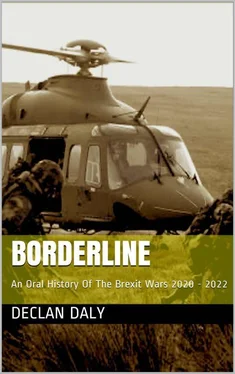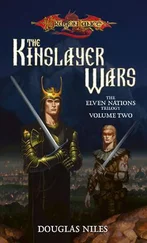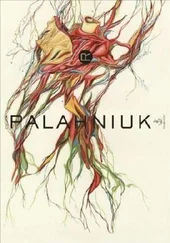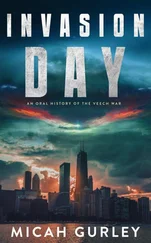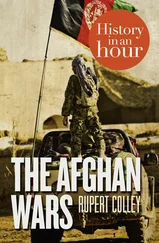Of the remaining eighty one, forty seven were dead and the rest wounded. Holding the nearest Carsonite fighters under fire allowed the remains of A Coy and the two APCs to close in and either destroy or put to flight the remaing enemy fighters. Still located in Northern Ireland, there was no prospect of further pursuit. Even if Task Group Viking was of a mind to continue the fight, they had more pressing issues. The Butchers Bill for the ambush on Glenasheevar Road was, in total eighty four dead Irish soldiers and one hundred and sixteen dead civilans – the IDPs they had been there to rescue. The scale of the ambush meant that there was some relenting on the restrictions and further troops from 28 Bn and 2 Cav were allowed to enter the area to help extract the wounded, dead and surviving members of Task Group Viking. One of the darkest days in modern Irish military history, it would also mark the last large combat action of the war.
Time to reflect in both combat and politics is often lacking. Usually, when it comes, it has come at great price. The short time surrounding the events from the first Carsonite push into Donegal to the battered survivors of TG Viking returning to Finner were a period of great political tension and friction, bookended by these brutal actions. It offered a moment of tragedy around which people could gather and put aside, or at very least moderate their differences. French, Irish and UK forces had come close to accidentally clashing in the skies. Irish troops, backed by the EU had made an incursion into Northern Ireland under condition that almost assured catastrophe, the risk of which was only accepted for humanitarian reasons.
Severely reduced in number, the Carsonites and Dissidents both returned to a lessor phase of warfare. Not without death, this level of conflict has been deemed ‘background’ by some commentators in an almost word for word recital of Russian doctrine in the area, escalate to de-escalate. As for the Russians, it does appear that their goals were met. The EU and UK were both damaged politically by several years of warfare on their own turf. This, presumably, was the idea all along. Cause damage, reduce an enemys strength, provide yourself room to move in some other political, economic or military arena. Post Covid-19, they have enjoyed more political space to recover than their distracted competitors. In this, Ireland, North and South was just their chosen battlefield.
It does appear that large scale arms shipments have stopped. The intelligence picture does seem to indicate that Russia too was surprised by the attack into Donegal. Moreover, for the numbers of Dissident and Carsonite fighters remaining, there are ample weapons left for a lower level of conflict to continue for some time. This too may suit the Russian agenda over time.
Severely reduced from their peak strength, the various paramilitary groupings are no longer considered capable of mounting any kind of large scale action. Shunned by their own communities for the pain they have caused, the continue to operate outside of society. As already mentioned however, a level of violence continues, mostly directed at each other. Without any significant number of replacements being willing to join them, it seems possible they will simply attrite each other out of existance. They could simply cease and disband of course, but it is most likely that too many personal rubicons have been crossed. These people cannot go home in their own country, they cannot assume that their enemy will simply stop, because they themselves will not stop. So what do they have left then? Perhaps they will simply wait, expecting always the sound of footsteps behind them, or helicopters muffled by terrain, coming closer.
◆◆◆
Of those who have graciously allowed me to use their interviews here, and to be identifed, it seems only right to ‘wrap up’ their stories to date.
Senator Ian Davis resigned as Minister for Defence six weeks after the operation to rescue IDPs in Northern Ireland. This was not in reaction to the ambush itself, but to the intelligence picture that was emerging almost immediately in it’s aftermath – the major threat to the state was ending. The processes he had put in place to replace and reinforce the Defence Forces were working with a lesser but still acceptable flow of new entrants. To his mind, the culture in the Department of Defence had been sufficently changed as to insure that the policies put in place would continue, unless a serious change of national circumstances dictate otherwise. He has returned to his retirement, full time.
Comdt Dave Heally suffered serious burn and shrapnel wounds from a rocket propelled grenade in the first volley fired at the convoy on Glenasheevar road. This injury and those of the command element around him accounted for the delay in decisive action on the day. In support of those who did take over, he will tell you that the circumstances meant he couldn’t have done any better anyway. Still recovering from his injuries, he is currently on a Command and Staff Course in the DF Training Centre in the Curragh. He has already been told he will be filling a Lt Col position in Ops in DFHQ when he completes his studies.
Comdt Brian Rafferty left the Air Corps for a job in the resurgent civil sector, seeking a more regular work life balance for his family. Ominously, the retention problem suffered by the Air Corps began to emerge again as soon as the post Covid-19 travel environement returned to normal, and the airlines were hiring again. Comdt Raferty however has eschewed the airlines for a career in search and rescue and is currently flying with a company based in Cyprus.
‘Brendan’, the one Red Team member who spoke to me has remained with the unit as it has regularised into what is now officially called the Defence Forces Opposition Forces Cell. It is still called the Red Team by everyone else. When asked what his job currently involves, he simply replied ‘Keeping busy’.
Sgt Andy Cunningham is currently overseas in the Golan Heights area of Syria.
Cpl Diane Keane is currently on her Standard NCOs course for promotion to Sgt. She was awarded a Distinguished Service Medal for her actions on the Glenasheevar Road, having been the first Section Commander to lead her troops forward to flank the enemy firing line. She herself has somewhat downplayed her contribution when compared to other accounts. The troops of her section on the day credit her with keeping them alive and enagaging the enemy effectively. Of note, she recounts that her mother Valerie has returned ro work, but is still feeling the longterm effects of her illness with Covid-19. When asked what she is doing now, Diane was vague but mentioned ‘training’. From other snippets of conversation, I believe she has also joined the Red Team in some capacity.
The new Ptes regarded Cpl Lucasz McGrath during the patrol brief with a look he was becoming accustomed to in the last six months. That ‘wanting to ask, but afraid of the answer’ look that he got from anyone who hadn’t been on the Glenasheevar Road. The eyes said, ‘what was it like to be under fire? How did you make it to the top? What did you do when you got there…’ Unconsciously below even those enquiries, was the one they asked of themselves ‘could I do the same?’.
Getting ready to head out in a small patrol in Co Monaghan, he knew Jan Nowak was getting the same silent interrogation in the other briefing room. He returned the stare of the nervous, fresh out of training reservists, absorbing their unasked questions for a moment. Had they spoke them aloud, he thought, how would he answer them; except to say that with luck, they would never find out.
In writing this book, I was putting down on paper a couple of ideas that had been floating around in my head and trying to make them somewhat coherent.
Читать дальше
